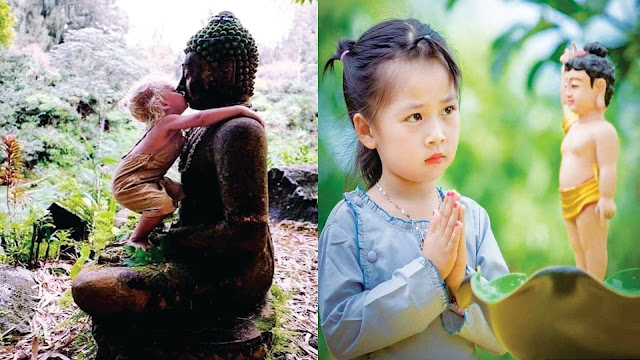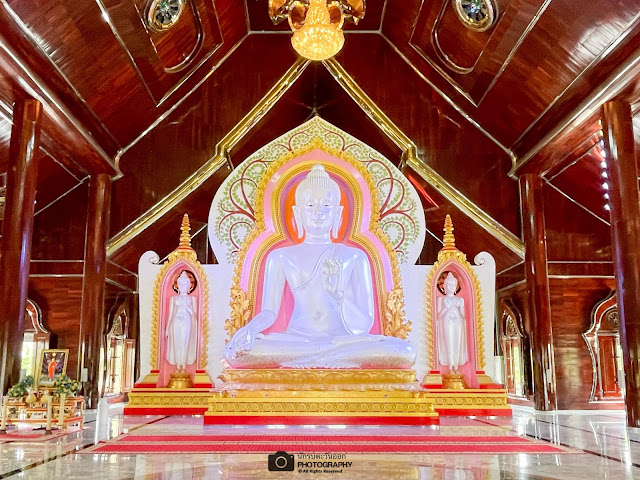Can We Justify War?
—Venerable K. Sri Dhammananda Maha Thera
The difference between a dog fight and a war or between two groups of people is only in its organization.
The history of mankind is a continuous manifestation of man's greed, hatred, pride, jealousy, selfishness and delusion. During the last 3,000 years, men have fought 15,000 major wars. Is it a characteristic of man? What is his destiny? How can men bring destruction to one another?
Although men have discovered and invented many important things, they have also made great advances towards the destruction of their own kind. This is how many human civilizations have been completely erased from this earth. Modern man has become so sophisticated in his art and techniques of warfare that it is now possible for him to turn the whole of mankind into ashes within a few seconds. The world has become a storehouse of military hardware as a result of a little game called 'Military Superiority.'
We are told that the prototype of a nuclear weapon is more powerful than the atomic bomb which was dropped at Hiroshima Japan in August, 1945 is being planned. Scientist believe that a few hundred thermonuclear weapons will chart the course towards universal destruction. Just see what we are doing to our human race! Think what sort of scientific development it is! See how foolish and selfish man is!
Man should not pander to his aggressive instincts. Man should uphold the ethical teachings of the religious teachers and display justice with morality to enable peace to prevail.
Treaties, pacts and peace formulae have been adopted and millions of words have been spoken by countless world leaders throughout the world who proclaim that they have found the way to maintain and promote peace on earth. But for all their efforts, they have not succeeded in removing the threat to man-kind. The reason is that we have all failed to educate our young to truly understand and respect the need for selfless service and the danger of selfishness. To guarantee true peace, we must use every method available to us to educate our young to practise love, goodwill and tolerance towards others.
The Buddhist Attitude
A Buddhist should not be the aggressor even in protecting his religion or anything else. He must try his best to avoid any kind of violent act. Sometimes he may be forced to go to war by others who do not respect the concept of the brotherhood of man as taught by the Buddha. He may be called upon to defend his fellow men from aggression, and as long as he has not renounced the worldly life, he is duty-bound to join in the struggle for peace and freedom. Under these circumstances, he cannot be blamed for his action in becoming a soldier or being involved in defence. However, if everyone were to follow the advice of the Buddha, there would be no reason for war to take place in this world. It is the duty of every cultured man to find all possible ways and means to settle disputes in a peaceful manner, without declaring war to kill his fellow men. The Buddha did not teach His followers to surrender to any form of evil power, be it man or supernatural being.
Indeed, with reason and science, man could conquer nature, and yet man has not yet even secured his own life. Why is it that life is in danger? While devoted to reason and being ruled by science, man has forgotten that he has a heart which has been neglected and has been left to wither and be polluted by passion.
If we cannot secure our own lives, then how can world peace be possible? To obtain peace, we must train our minds to face facts. We must be objective and humble. We must realize that no one person, nor one nation is always wrong. To obtain peace, we must also share the richness of the earth, not necessarily with equality but at least with equity. There can never be absolute equality but surely there can be a greater degree of equity.
It is simply inconceivable that five percent of the world's population should enjoy fifty percent of the its wealth, or that twenty-five percent of the world should be fairly well-fed and some overfed, while seventy-five percent of the world is always hungry. Peace will only come when nations are willing to share and share equitably, the rich to help the poor and the strong to help the weak, thus creating international goodwill. Only if and when these conditions are met, can we envision a world with no excuse for wars.
The madness of the armaments race must stop! We must try to build schools instead of cruisers, hospitals instead of nuclear weapons. The amount of money and human lives that various governments waste in the battlefield should be diverted to build up the economics to elevate the standard of living.
The world cannot have peace until men and nations renounce selfish desires, give up racial arrogance, and eradicate egoistic lust for possession and power. Wealth cannot secure happiness. Religion alone can effect the necessary change of heart and bring about the only real disarmament?that of the mind.
All religions teach people not to kill; but unfortunately this important precept is conveniently ignored. Today, with modern armaments, man can kill millions within one second, that is, more than primitive tribes did in a century.
Very unfortunately some people in certain countries bring religious labels, slogans and banners into their battlefields. They do not know that they are disgracing the good name of religion.
'Verily, O monk,' said the Buddha, 'due to sensuous craving, kings fight with kings, princes with princes, priests with priests, citizens with citizens, the mother quarrels with the son, the son quarrels with the father, brother with brother, brother with sister, sister with brother, friend with friend.' (Majjhima Nikaya)
We can happily say that for the last 2,500 years there has never been any serious discord or conflict created by Buddhists that led to war in the name of this religion. This is a result of the dynamic character of the concept of tolerance contained in the Buddha's teaching.
Credit: Buddhism For World Peace And Humanity
______________________
Other articles: Karaniya Metta Sutta Chanting , Mangala Sutta Chanting - The greatest blessing , Are Buddhists Idol Worshippers? , Attainment of Buddhahood , Faith, Confidence and Devotion , Loving-Kindness , Can We Justify War? , Dreams and Their Significance , Buddhism and Women , Modern Religion , Is Buddhism a Theory or a Philosophy? , Hi Beloved Community! , Are Buddhists really idol worshippers? , Which is the Proper Religion? , Religion in a Scientific Age , How to Save Yourself , Why is there no Peace? , You Protect Yourself , Moral and Spiritual Development , Do It Yourself , Everything is Changeable , The Meaning of Prayer , What is the purpose of life? , The Buddha's Silence , Kathina Robe Dana festival , What is Kamma? , The teachings of Buddha , What is Kamma? , Pavāranā day , The Law Of Karma , The First Buddhist Council , Practical Vipassana Meditational Exercises By Ven. Mahasi Sayadaw , There are six supreme qualities of Dhamma , Buddhist Paintings: The Life of the Buddha , The life of the Buddha , What is Buddhism? , A Basic Buddhism Guide , The Eight-Fold Path is the fourth of the Four Noble Truths - the first of the Buddha's teachings , A Gift of Dhamma , WHAT DID THE BUDDHA TEACH? , THE FOUR NOBLE TRUTHS , A Dhammatalk by Ajahn Chah: The Four Noble Truths , The Middle Way of Buddhism , The Path to Peace , The Middle Way Within , The Training of the Heart , Right Practice - Steady Practice , Question and Answer about Dhamma (QA1 - QA10) , Question and Answer about Dhamma (QA11-QA18) , Questions and Answers with Ajahn Chah , A Dhammatalk by Ajahn Chah: Questions and Answers , Even One Word Is Enough , Right Restraint , Listening Beyond Words , Where did the Buddha enter Nibbāna? , Knowing the World , Wholehearted Training , Understanding Dukkha , Monastery of Confusion , It Can Be Done , About Being Careful , Unshakeable Peace , Suffering on the Road , Clarity of Insight , Evening Sitting , Transcendence , "Not Sure!" - The Standard of the Noble Ones , Sense Contact - the Fount of Wisdom , In the Dead of Night... , The Flood of Sensuality , Sammā Samādhi - Detachment Within Activity , Maintaining the Standard , Understanding Vinaya , Dhamma Fighting , Toward the Unconditioned , Still, Flowing Water , ''Tuccho Pothila'' - Venerable Empty-Scripture , Living in the World with Dhamma , Meditation , Our Real Home , Why Are We Here? , Making the Heart Good , Epilogue , Right View - the Place of Coolness , No Abiding , Convention and Liberation , The Peace Beyond , The Path in Harmony , On Meditation , Training this Mind , Just Do It! , Reading the Natural Mind , Living With the Cobra , The Two Faces of Reality , Dhamma Nature , The Last Message of the Buddha , The towering Phra Buddha Maha Nawamin of Wat Muang is one of the tallest statues in the world , "Happy Honey Full Moon Day" , Phra Phuttha Rattana Mongkhon Mahamuni at Wat Bhurapha Piram , The Big Buddha Phuket , Wat Muang, largest sitting Buddha statue in Thailand , The Big Buddha (Hong Kong) , Wat Tham Pha Daen a beautiful hill top temple , WatYaiChaiMongkol (Mongkhon), Ayutthaya, Thailand. , The sacred Buddha head in the roots of the Bodhi Tree. , Wat Phai Lom






.jpg)



.jpg)


.jpg)
.jpg)
.jpg)
.jpg)





























